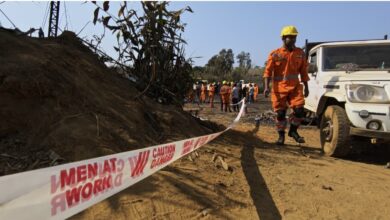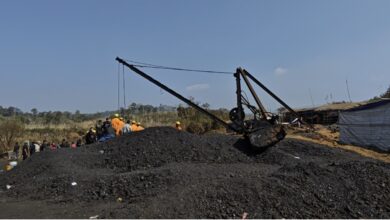Cabinet nod to NABARD loan for infra development

Shillong, Dec 21: The state cabinet has approved the proposal for availing loan of Rs 1,500 crore under the NABARD Infrastructure Development Assistance (NIDA).
Earlier, Assam had availed the loan of Rs 10,000 crore.
“We have put in a proposal of Rs 1,500 crore to NABARD for this fund. Today, the cabinet has approved it and the proposal will be sent to NABARD for final approval and release of the funds to the state government.”
“We are going to budget some Rs 100 crore for the lower primary schools, we will also be budgeting money for administrative blocks, wherever it is required, administrative units like civil sub division buildings, DC offices, SP offices – all these administrative buildings will be done with this fund,” he said.
“We also intend to invest in police stations as they have been neglected for a very long time. With the NIDA fund, we will see development and infrastructure improvement throughout the spectrum,” he added.
The chief minister said the state government will have to repay the loan in the next 15 years.
The interest component will be at 7.5 percent, which is much lower than the market rate.
More blocks on the cards in state
The state government will examine the proposal for creation of more blocks in the state.
There is already a demand for the creation of a new block at Lumshnong in East Jaintia Hills district after the cabinet decided to formally shift the Khliehriat Block to Wapung village.
The chief minister said there are many locations around Lumshnong and other places in the Khasi and Jaintia Hills as well as Garo Hills where people have to travel for 50 km to get to a block, through which almost 60-70 percent of the rural schemes are distributed.
He pointed out that the sudden decision of the then Congress government to shift the block office from Wapung to Lumshnong village had created a lot of confusion among the people of the region.
He said initially when East Jaintia Hills district was created, the then cabinet had decided to shift the block from Khliehriat to Wapung and the land was given by the people of Wapung village and even the infrastructure development had also started.
“Then suddenly there was a decision at the CM’s level to shift the block from there to Lumshnong. Therefore, this has created a lot of confusion and people were very concerned about the shift and it really complicated the situation,” he said.
Sangma said that the sudden shifting of the block to Lumshnong was something that could have been avoided and not done in that manner.
To a query whether the people of the two villages were victims of “politics” by the then government, the chief minister said, “All I am saying is that there were some complications that were created at that point in time we are just trying to rectify those complications and figure out how we can resolve those issues and we had to take a stand and we took a stand based on the decision made by the past government and therefore, we are just trying to correct some of the anomalies and some of the complications created in the past.”
Prisons to be correctional service
The cabinet has approved the proposal to change the nomenclature of the department of prisons to department of prisons and correctional services.
Sangma said in line with the Government of India notification, other states have started the process and Meghalaya has also followed.
“So additionally it will be called department of prisons and correctional services,” he said.
The cabinet has also approved the appointment of Teilang S Pyngrope, who is the retired deputy secretary, as the secretary of the Meghalaya State Consumers’ Dispute Redressal.
Fiscal deficit
The cabinet also approved the amendment of the Meghalaya Fiscal Responsibility and Budget Management Act (MFRBMA) 2006 which seeks to increase the fiscal deficit to 4 per cent.
Sangma said the decision was in line with the notification of the Government of India. The fiscal deficit was allowed to be increased to 4 percent by Finance Commission.
“The proposal is to maintain the fiscal deficit at an annual limit of 4 percent of the GSDP,” he added.





